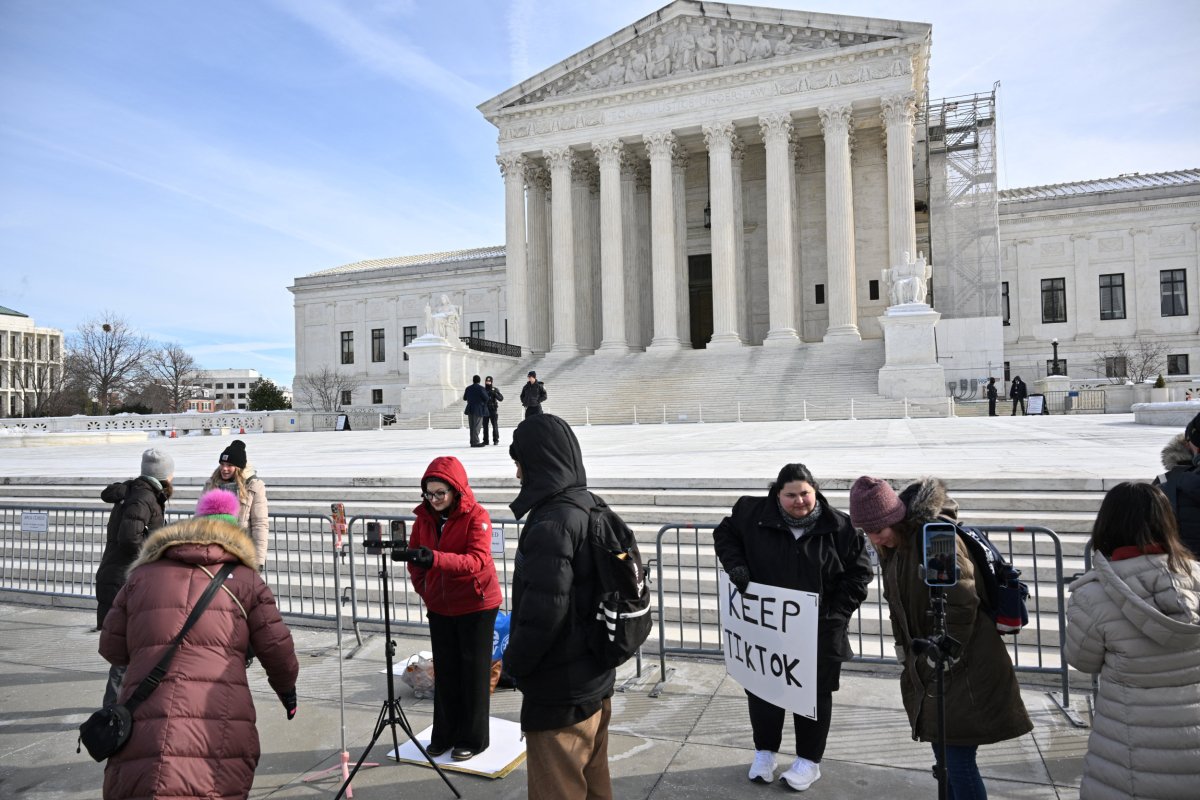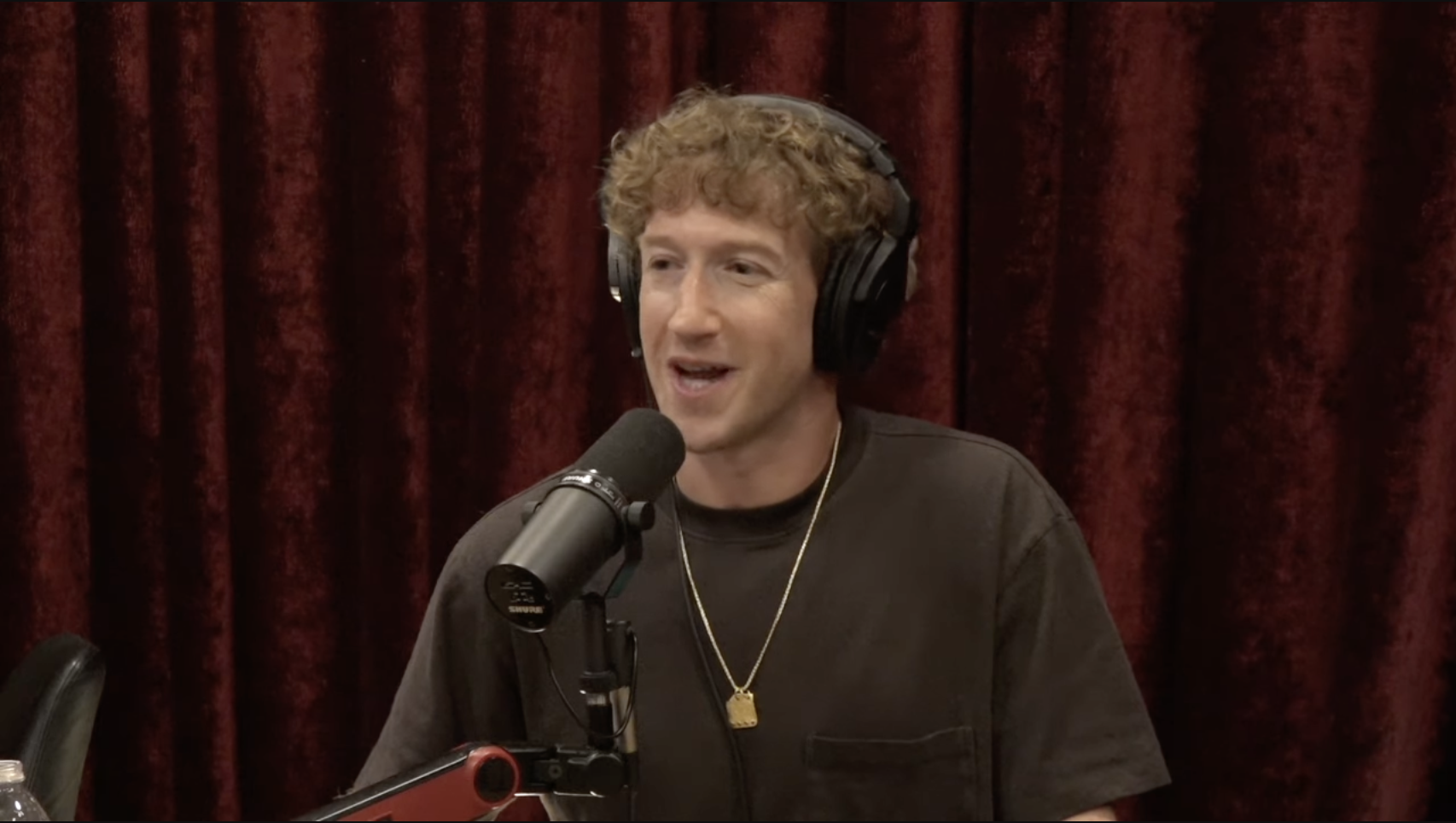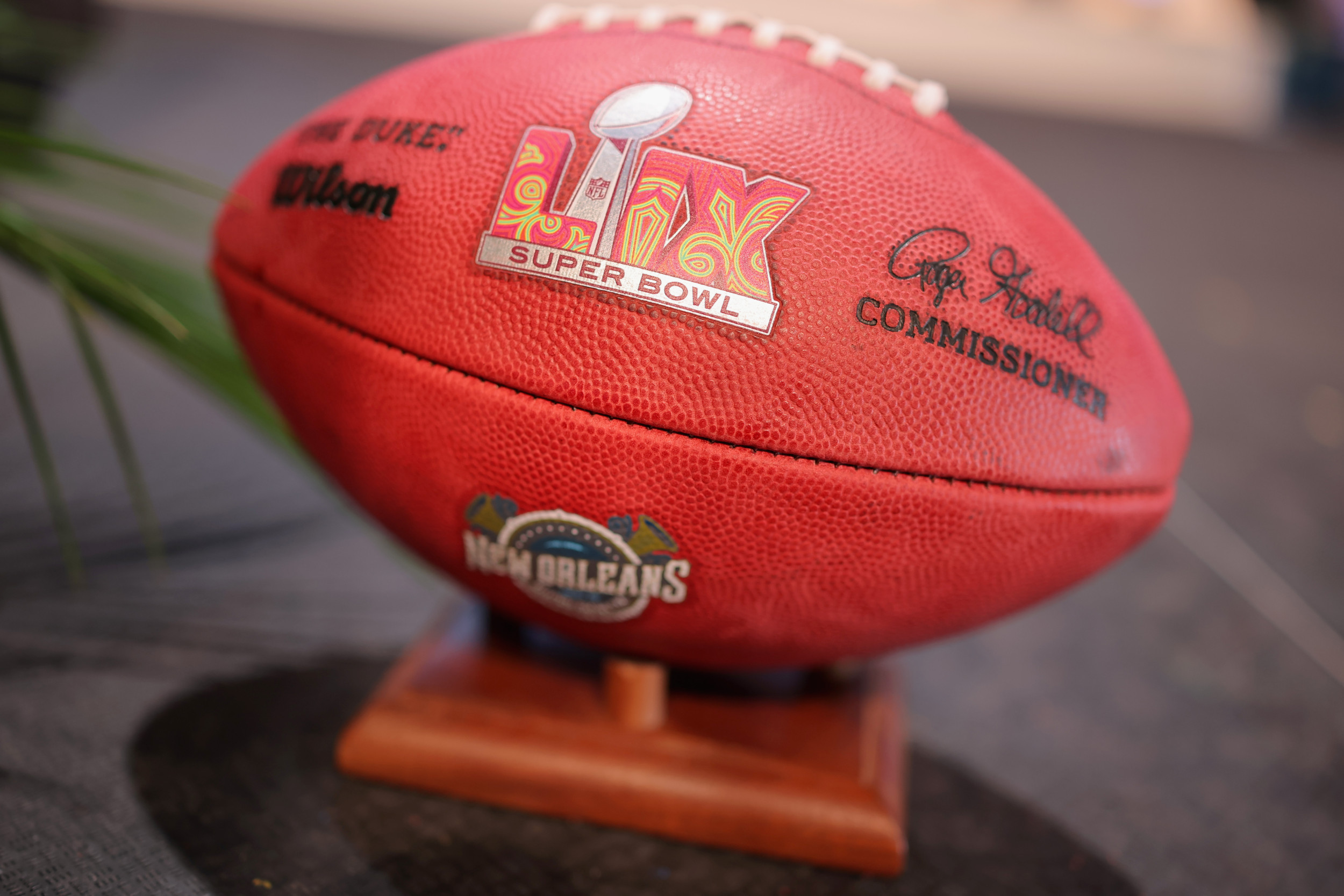President-elect Donald Trump loomed over the U.S. Supreme Court's hearing into whether justices should block a law that would ban the platform if its parent company does not divest its ownership by January 19.
Why It Matters
The Supreme Court's decision in the case may determine whether TikTok will continue to operate in the U.S. after the ban goes into effect.
Proponents of the ban point to concerns about whether the Chinese Communist Party could use the platform to undermine U.S. national security, but opponents have raised First Amendment arguments about why the ban would be unconstitutional.
A ban would disrupt the creator economy for many influencers who have built a following and stream of income from the platform.
What To Know
Trump came up at multiple points during arguments, with lawyers representing TikTok and its content creators saying he could be instrumental in determining the platform's future.
"As I understand it, we go dark. Essentially the platform shuts down, unless there's a divestiture or unless President Trump exercises his authority to extend it. But he can't do that on January 19. On January 19, we still have President Biden. And on January 19, as I understand it, we shut down," said Noel Francisco, the lawyer representing TikTok.

He continued, "It is possible that come January 20, 21, 22, we might be in a different world. That's one of the reasons I think it makes perfect sense to issue a preliminary injunction here, and simply buy everybody a little breathing space."
Several justices seemed skeptical of TikTok's arguments, which largely centered around the law being an attempt at blocking the speech of TikTok and its users. They argued a ban would violate TikTok's First Amendment right to free speech.
U.S. Solicitor General Elizabeth Prelogar argued that the law is not about suppressing content, but rather about U.S. national security.
Both conservative and liberal justices appeared skeptical of TikTok's arguments.
Chief Justice John Roberts raised concerns about potential "content harvesting."
"All the information, whatever algorithms they want, that has access to personal information, or at least information that is not readily available, about 170 million Americans, and whether they're going to use it in 10 or 15 years when those people grow up and have different jobs in different places, or whether they're going to use it now," he said. "That is, as I look at the congressional record, is what Congress is concerned about."
Justice Ketanji Brown Jackson told Francisco the fact that TikTok could still operate after a divesture from ByteDance suggests he is "wrong about the statute being read as 'TikTok, you have to go mute.'"
"Because TikTok can continue to operate on its own algorithm, on its own terms as long as it's not associated with ByteDance. Isn't this really just about association?" she said.
Trump, who is set to return to the White House just one day after the ban is set to go into effect, filed a friend-of-the-court brief asking the court to delay the ban until after he takes office to give him a chance to reach an agreement to address security concerns and keep the app up and running.
Trump has voiced skepticism toward the ban, questioning why he would want to get rid of it in a post to Truth Social earlier in December, in which he said he receives billions of views on the app.
What People Are Saying
Francisco, in his arguments: "The trigger for this law, the one thing that gets it going, is if you operate a social media platform that has user-generated content. Unless that content takes the form of a product, travel or business review. Then, within that universe of content, it says there's one speaker we're particularly concerned about, and we're going to hammer home on that one speaker."
Prelogar, in her arguments: "For years, the Chinese government has sought to build detailed profiles about Americans. Where we live and work, who are friends and coworkers are, what our interests are and what our vices are. TikTok's immense dataset would give the PRC [People's Republic of China] a powerful tool for harassment, recruitment and espionage."
President-elect Donald Trump at a December 16 press conference: "I have a warm spot in my heart for TikTok because I won youth [in the 2024 election] by 34 points. And there are those who say TikTok has something to do with it."
What Happens Next
If the Supreme Court doesn't step in to block the ban, it will go into effect on January 19.
In an earlier court filing, TikTok said that even a one-month shutdown would cost the app about a third of its daily U.S. users.




















 English (US) ·
English (US) ·